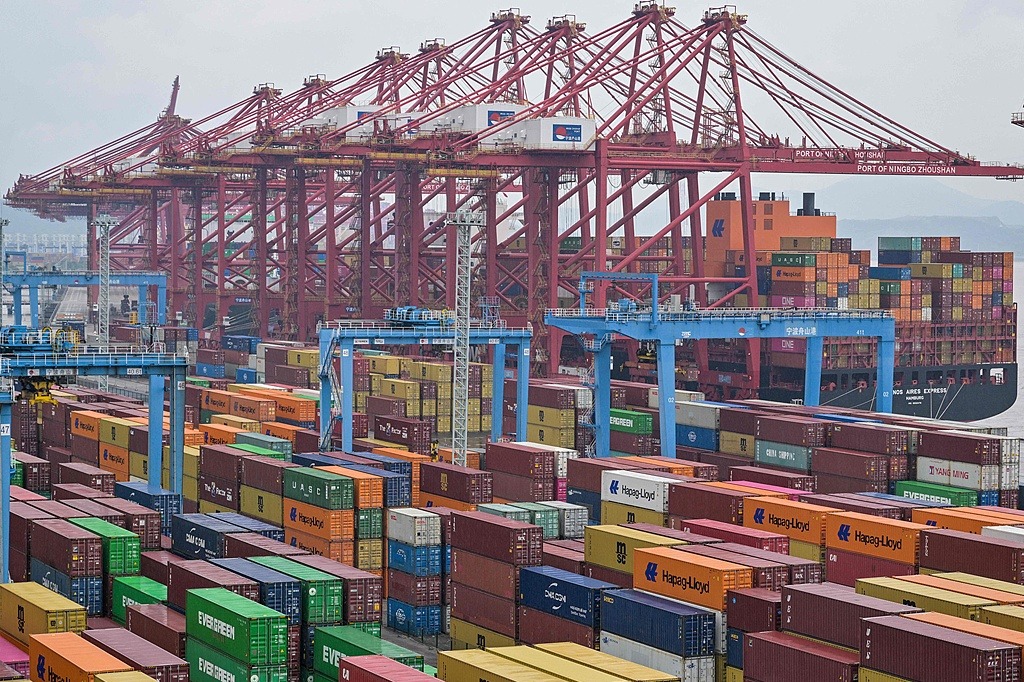US turns to social distancing to prevent increase in infections

The Italian government has locked down an entire country of 60 million people to stop the spread of the novel coronavirus, but experts say any type of lockdown in the United States would be unworkable.
The possibility of "regional lockdowns" in the US was raised on Sunday by Anthony Fauci, the director of the National Institute of Allergy and Infectious Diseases and a member of US President Donald Trump's coronavirus task force.
But on Monday he said: "I don't think you want to have folks shutting down cities like in northern Italy-we are not at that level. Social distancing, like in Seattle, is the way to go."
Social distancing is a strategy aimed at reducing the opportunities for a disease to spread person to person among individuals who are not known to have been infected or exposed, based on the assumption that many in the community are contagious without knowing it, said Lindsay F. Wiley, a professor of law and director of the Health Law and Policy Program at American University in Washington.
Many cities and states have adopted aggressive social distancing strategies to suppress the outbreak, such as employees working from home, students switching to online classes, and organizations canceling or postponing large gatherings.
New York Governor Andrew M. Cuomo announced on Tuesday that schools, temples, churches and other large gathering places within a one-mile zone of the city of New Rochelle will be shut for two weeks as the state fights the viral epidemic.
During the period, National Guard troops will help clean facilities and deliver food inside the containment zone.
"So far, social distancing is voluntary in the US," said Wiley, "but as the outbreak unfolds, we're likely to see more mandatory measures directed at certain types of businesses or organizations.
"If so, mandatory orders could be enforced via inspections and court orders, similar to how a fire marshal can shut down an event if it becomes too crowded or a health inspector can shut down a restaurant if food safety violations are detected."
Stricter measures mulled
Comparing US with other places, John Swartzberg, clinical professor emeritus at UC Berkeley's School of Public Health, said: "When you see a country like Italy, which is much more similar to the United States in terms of its Western heritage of individuality, is doing the same thing (a lockdown), it makes one recognize that what's going to determine how aggressive a society needs to act is how severe the epidemic is.
"Americans might be more reluctant to accept a lot of the measures that have been used in Italy or in China, but if the epidemic is bad enough, they will be forced to accept them."
Claire Standley, assistant research professor at the Center for Global Health Science and Security of Georgetown University, said: "Early data suggests that in Wuhan, the most effective measures taken to contain transmission included cancellation of mass gatherings.
"The amount of data being generated and shared publicly and rapidly during this outbreak is unprecedented, so public health officials have the opportunity to look at the evidence of what has worked in other places in order to inform their decision-making, and determine the types of interventions to implement."
In the US, most quarantines are voluntary, so individual school districts and businesses are making decisions about whether to close or cancel events, but health officials have authority to impose a mandatory order subject to enforcement by the police, Wiley said.
Mandatory orders tend to be more common for people who are diagnosed while they are in transit or for people who have demonstrated an unwillingness or inability to comply with a voluntary order, she said.
Public health decisions are inherently political, which is "unavoidable".
Instead of a lockdown, Wiley said a cordon sanitaire, a geographic boundary with strict limits on who can move in and out, is highly likely in the US in response to the COVID-19 epidemic.
Enclosing people who have not yet been exposed to the virus along with the exposed and infected in a confined area would be potentially unconstitutional, she said.
Today's Top News
- Xi addresses Central Urban Work Conference, listing priorities for urban development
- China reports 5.3% GDP growth in H1
- China handles 95 billion parcels in first half of year
- China, India vow to boost relationship
- Tips for expats to strike swifter friendships
- Digital initiative turns city into innovation hub






























